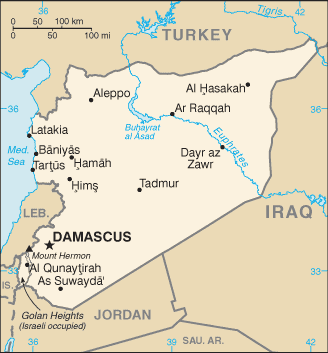The status of the Syrian rebel forces has always become a serious source of concern ahead of peace talks, and that’s no different this time with Monday’s Astana peace talks looming. This time is a little different, however, with a significant rebel delegation agreeing to attend, but growing divisions among the various rebel factions, particularly along the lines of who their primary backer is.
 The Astana talks are brokered by Russia and Turkey, and unsurprisingly, the rebel delegation is overwhelmingly made up of Turkey-backed rebel groups, while the US-backed and Saudi-backed groups are taking a back seat, if they’re sending anyone at all.
The Astana talks are brokered by Russia and Turkey, and unsurprisingly, the rebel delegation is overwhelmingly made up of Turkey-backed rebel groups, while the US-backed and Saudi-backed groups are taking a back seat, if they’re sending anyone at all.
The rebels who aren’t in positions of leadership aren’t too happy, complaining that the talks in general are meant to split the rebel force, and accusing them of being a Russian plot. The exclusion of al-Qaeda’s Nusra Front also remains a major source of annoyance among some rebel groups that remain closely aligned to them.
The complaints about rebel divisions resulting from the peace talks are the focus now, but the bigger danger will be that the divisions are imperiling the talks, leaving open the question of how much the delegation can actually deliver on promises they make.


